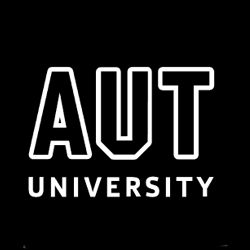
Using Authentic Spoken Texts in Socio-Pragmatic Focused Instruction: A Survey of Teacher Practices and Perspectives
Status
Completed: 30 June 2009
Project Details
A project, completed in 2009, to discover to what extent teachers had access to suitable authentic materials to teach the important norms of pragmatics (socio-culturally appropriate use of language) in situations relevant to the personal and academic or employment lives of their students. A collaboration of AUT University and University of Auckland.
Aims:
The main aims of the project were to:
- create and evaluate a bank of materials that can be used by ESOL (English for Speakers of Other Languages) teachers
- build materials development and analytical capability amongst tertiary ESOL teachers
- promote greater awareness of different effective approaches to the teaching of socio-cultural norms of spoken New Zealand (NZ) English based on the use of authentic NZ language samples
- identify the strategies that teachers used to teach the norms and their attitudes and beliefs about the use of authentic spoken texts (i.e. recordings of genuine native speaker interaction) in the classroom with learners at different proficiency levels.
Methodology:
The project methodology involved:
- survey of ESOL teachers around the use of authentic texts
- follow-up interviews with ESOL teachers to explore in more depth themes identified in their responses to the survey
- authentic text collection and development of instructional materials.
Team

Heather Denny
Project Leader
Auckland University of Technology
Helen Basturkmen
The University of AucklandStatus
Funding
$10,000.00 (excl GST)
Key Findings
The key findings from the project included:
- The rejection of the use of authentic texts for lower level classes to teach socio-cultural norms is understandable but there are documented ways round teachers’ concerns. It is possible to get very short extracts from authentic samples to teach key pragmatic features such as key responses in adjacency pairs, backchannelling giving feedback in conversation, other routine politeness formula, and key expressions used in speech acts such as polite requests and refusals.
- It is also possible to simplify authentic texts, re-script and re-record them, retaining the features that learners can readily notice and acquire. This approach has been used successfully in the Listening to Australia/ New Zealand series and it might be possible to mentor and support teachers to do this.
- On the other hand, the teaching of spoken English norms at higher levels seems to be largely lacking. There is an emphasis on the teaching of reading, listening and writing skills when oral skills and a knowledge of socio-cultural norms are equally important for more proficient speakers in employment and academic settings.
- There were two unexpected elements in the findings of this project. One was the seemingly limited metalanguage teachers had to identify pragmatic features and discuss them, although this might have been as a result of the research methodology. It is difficult for busy teachers to have an in-depth knowledge of the theory of all the areas of language they teach and some professional development is needed for those who find they need it.
- The other unexpected finding was the emphasis on teacher-led and output-focused activities. An overwhelming theme was a lack of time for teachers to find or produce samples and materials which are suitable for the level and fit the curriculum of their courses. Clearly management support in the form of time to create effective materials might lead to better outcomes for learners.
Key Recommendations
The key recommendations from the project included:
Suitable authentic and semi-authentic materials | More suitable authentic and semi-authentic materials for pragmatics-focused instruction in the classroom, particularly in courses with a community focus, needs to be made available or produced. Mentoring by more experienced teachers of those with less experience in this endeavour would build materials production and action research capability.
Value of using authentic sample texts | Teachers need to be made more aware of the value and practicability of using authentic sample texts for the teaching of pragmatics at all levels, including very high and very low levels of proficiency. One way of doing this would be to run workshops in which teachers look at and reflect on samples of existing pragmatics-focused authentic materials with reference to classes in which they currently teach. Another way is to support (with time release) and mentor key teachers at several levels to produce such materials for their classes and report on the results of trialling them in classes.
Develop the metalanguage | There is an apparent need for teachers in the context researched to develop the metalanguage necessary to discuss and debate the teaching of pragmatics. This could be done through a series of recommended readings, particularly for those who wish to work with colleagues to develop their skills in this area of teaching.
Teacher development activities | There is a need for teacher development activities to raise the awareness of teachers in the context researched to the possibilities of using more learner initiated and awareness-focused activities. Teacher educators could be made more aware of this need and incorporate suitable activities in pre-service and in-service courses.
Future teacher surveys | Teacher surveys such as the one that was undertaken in this research are a useful form of teacher development needs analysis. Participants sometimes struggled to verbalise their thoughts on the topic of the questions. They needed more time to reflect on the questions. It would be better in any future research project such as this to give participants the questions in advance. Also, a wider survey would produce more generalisable results.
A research report prepared by Heather Denny and Helen Basturkmen.
(PDF, 301 KB, 12-pages).
- 30 June 2009